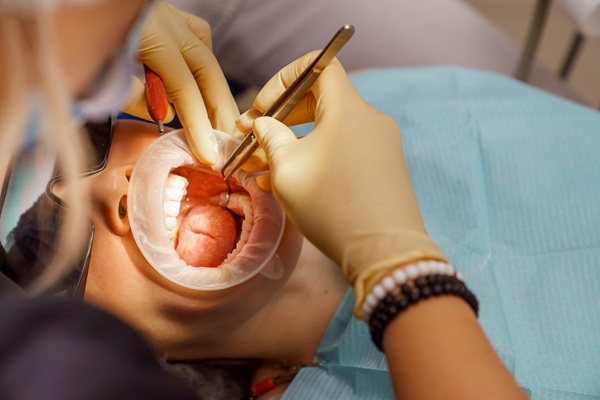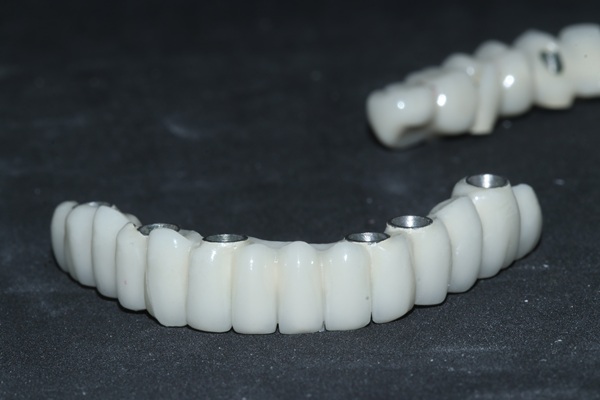The Difference Between Simple and Surgical Tooth Extraction
While preserving natural teeth is always recommended, are sometimes necessary to restore and preserve oral health. Depending on the complexity of the case, a general dentist or oral surgeon may recommend either a simple or surgical extraction. Understanding the differences between these two approaches can provide clarity and peace of mind when preparing for a procedure.
When do you need a tooth extraction?
Dental providers perform tooth extractions when a tooth becomes too compromised to be saved or when leaving it in place causes further complications. For example, severe decay that reaches deep into the tooth structure can lead to persistent pain and infection, making extraction the most effective solution when a filling or root canal is no longer viable. Similarly, gum disease can loosen the teeth by weakening the supporting gum tissue and jawbone; therefore, the provider may need to extract such teeth as part of the patient's gum disease treatment.
One of the most common types of tooth extraction dental providers perform is on impacted wisdom teeth. Impaction means that a tooth does not have enough room to erupt above the gumline properly. This condition can lead to pain, swelling, and potential damage to adjacent teeth, often necessitating extraction.
Other reasons for tooth extraction include significant trauma, fractures, or non-healing infections that render a tooth beyond repair. A thorough examination from a dental provider can reveal whether extraction is necessary and, if so, what treatment option best supports long-term oral health and function.
Types of tooth extraction: Simple vs. surgical extractions
Tooth extractions are classified as either simple or surgical, depending on the complexity of the procedure. Simple extractions are for visible teeth that are relatively intact and allow the provider to remove them without making incisions in the gum tissue. A general dentist typically carries out the procedure using local anesthesia, loosening the tooth before carefully pulling it. Recovery is usually quick and involves minimal discomfort. This approach is commonly used for mildly decayed teeth, baby (primary) teeth that have not fallen out naturally, or teeth removed for orthodontic treatment.
Surgical extractions are more complex, as they are necessary when a tooth is broken at the gum line or impacted beneath the surface. They are often needed for impacted wisdom teeth, severely broken teeth, or cases with extensive root damage that the provider cannot restore. An oral surgeon or dentist with advanced training performs the procedure, using pain management techniques for patient comfort. They will make incisions into the gums to access the tooth, which they may section into smaller pieces for easier removal. Recovery can take several weeks, although the patient should be able to return to work or school within 48 to 72 hours.
Which option is right for you?
A simple extraction is often sufficient for cases where the tooth is fully visible and intact. However, a surgical approach may be necessary when a tooth is broken, impacted, or embedded deep in the jaw. Factors such as pain tolerance, the presence of infections, and existing dental conditions also influence the decision. A dental provider can offer a personalized recommendation based on a patient's specific needs and dental health history.
Get more info in a consultation
Both simple and surgical tooth extractions can help restore oral health. Consulting with a general dentist or oral surgeon allows for a detailed assessment and a discussion of your treatment options. Contact Red Cliffs Dental to schedule your consultation today.
Request an appointment here: https://www.drpainless.com or call Red Cliffs Dental at (435) 465-4002 for an appointment in our St. George office.
Check out what others are saying about our dental services on Yelp: .
Recent Posts
An extraction is usually recommended as a last resort when a tooth is too damaged to be saved. The two main types of extractions performed by dentists are simple and surgical extractions. A simple extraction is performed when enough of the tooth is left above the gumline to pull it out with forceps. A surgical…
If you've knocked out a tooth, it's an emergency dentistry situation, and you should call your dentist immediately. If they can't see you right away, an emergency dentist can help you in the meantime by putting the tooth back in place and providing emergency dental care until you can get to the dentist's office. Read…
An emergency dentist is a great resource to make use of when dealing with an infected tooth. If infections go ignored, they can become significantly worse. There are a lot of signs to look out for when trying to determine whether a visit to an emergency dentist is necessary. These signs should be reviewed so…
Thinking about choosing implant-supported dentures to replace your missing teeth? This type of denture offers many benefits, which is why this denture choice has become so popular. However, properly caring for dentures supported by implants is necessary so they will last for many years.While there are many different types of denture choices to choose from,…


